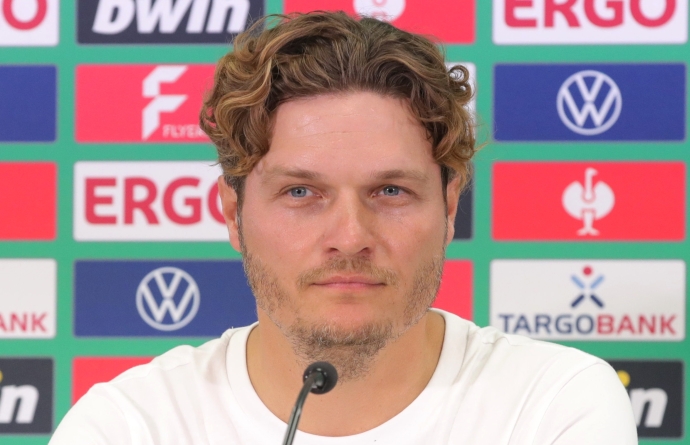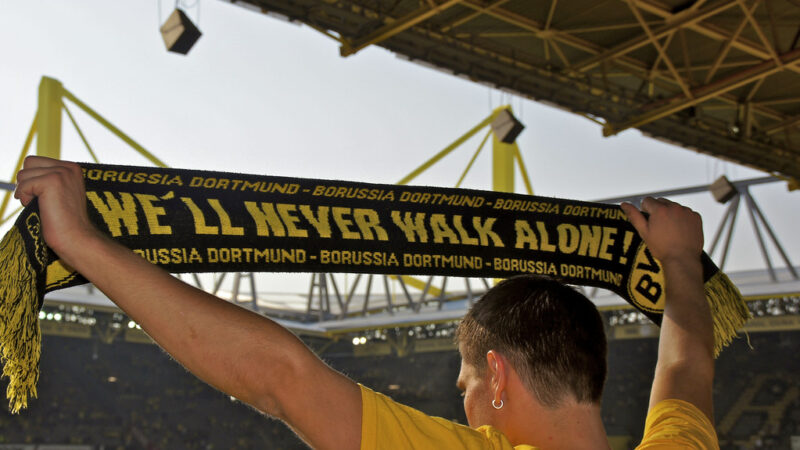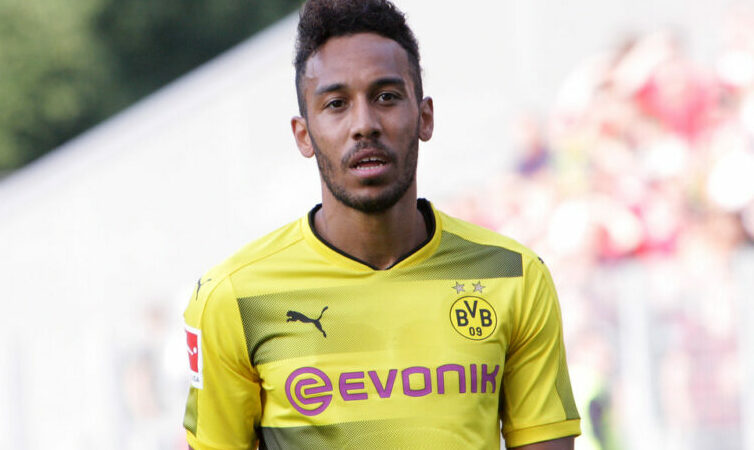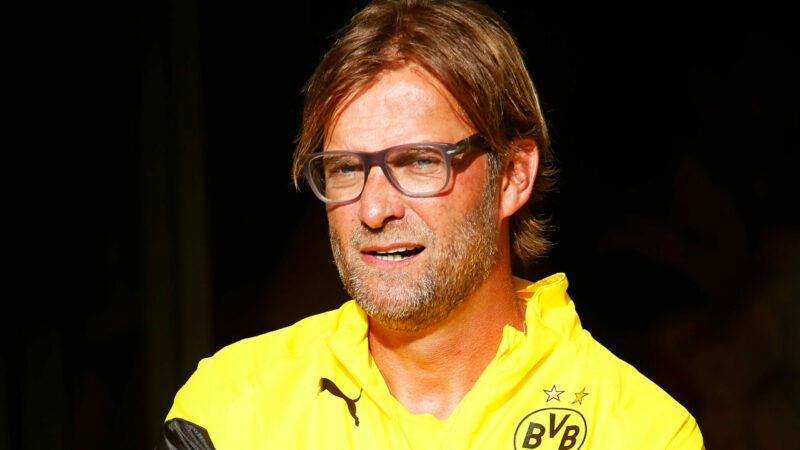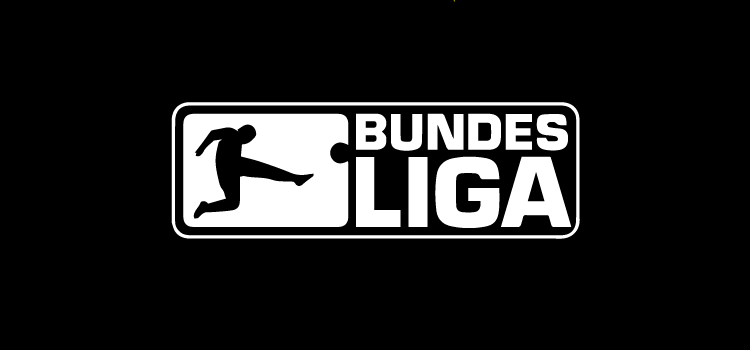Is Stoeger A Better Choice for Manager Than Nagelsmann?
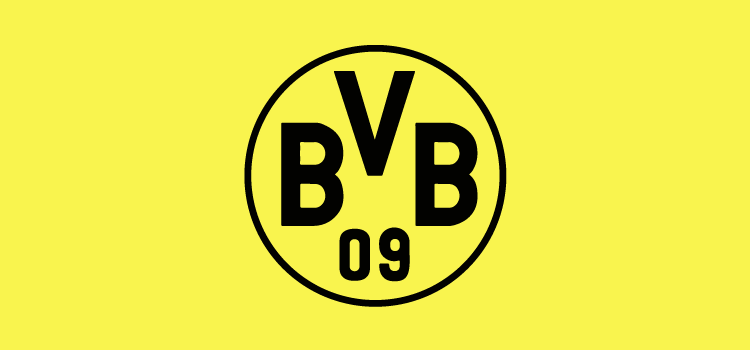
Without a doubt, Julian Nagelsmann is one of the best regarded managers in the game. He is associated with almost every vacancy, including the potential one in the summer in Dortmund. It’s easy to see why – even a BVB fan can admit the Hoffenheim manager has been an effective man-manager in the Bundesliga. The question is whether he is the right fit for Dortmund… or if the right fit is already employed by the club.
Earlier this season, Nate Smith and I wrote a Black and Yellow debate about who should replace Peter Bosz. Neither of us guessed correctly, but we are now taking a slightly different track on this debate and adding Moses Kalinda. Now the question is who would be a better manager for Borussia Dortmund from this point forward: Stoeger, Nagelsmann, or a wild card choice. Join in on the debate and share who you think would be the best manager for this club going forward.
Stay the course with Stoeger
We knew from the moment he was hired that Peter Stoeger was a hire of necessity. He had Bundesliga experience, brought a smaller club up to the top flight, and was available after a shockingly bad start. If you squeezed your eyes, he kind of looked like Jurgen Klopp minus the tactical innovations. In reality, he was available and not a completely embarrassing hire.
Since he became manager, Dortmund have climbed back into the top four and are challenging for the Europa League. The results have not led to attractive football and there are still obvious deficiencies in the club. The defence at times is disjointed, Roman Burki still commits some howlers, and the midfield is still a mix-and-match of players. That said, Stoeger may be succeeding in doing something valuable for Dortmund in the long-term.
Thomas Tuchel was a rising star when hired by Dortmund but he was in the same attacking mold as Jurgen Klopp. The hope by management was that Tuchel could repeat that Klopp magic while still maintaining the financial bottom line, but unlike Klopp Tuchel’s inability to work with management (and some suspect defending) led to his departure. Hiring Peter Bosz from Ajax – another manager who liked attacking football and molding young players – backfired when the club’s defensive deficiencies could no longer be masked. Stoeger is more pragmatic and can work with the talent given him rather than try to take the talent given him to fit a system.
In essence, Steoger is the kind of dull Dortmund need. With wage inflation and the overvaluing of young players, BVB needs to up its spending in the transfer market or admit what worked ten years ago no longer can. It can still feature pressing, exciting football but needs a dash of pragmatism to concede the reality of the market. Stoeger is the type of manager who can make it work and achieve goals, the kind of modesty this club actually needs.
Progressive Jardim The Perfect Match
In reality, Borussia Dortmund should never have been in this situation. Just one year ago, the club had in its employ one of the best young tactical minds in world football, Thomas Tuchel, backed up by the scouting talents of Sven Mislintat and his team. On the face of things, the club had everything they needed for a sustained challenge at Bayern Munich’s dominance over the Bundesliga. The collapse of Tuchel’s standing had far more to do with a behind the scenes war of ego than anything happening on the pitch, but the result was a club in need of a new leader. Peter Bosz was thought to be that man, but failed miserably, and now the club is helmed by the fastidious and pragmatic Peter Stoeger, who has helped to right the ship with a solid foundation of defensive responsibility.
Stoeger was an inspired choice to save a season that looked to end in disaster by December, but he is simply not a long-term philosophical match with the club. Stoeger’s adherence to a structured defence and teamwork is a solid, if conservative, foundation on which to build a team, but in Dortmund, they do not tend to deal in safe options. In many ways, die Schwarzgelben is one of the most progressive clubs in the world; they moved to a model of young talent and sustainability out of necessity more than a decade ago and have stuck with it since, leading to a consistently exciting team that plays as thrilling a brand of football as exists in Europe. Juergen Klopp embodied this as much as anyone during his tenure with the club, creating what he would call his “heavy metal” brand of football. Tuchel was a natural evolution from Klopp, adding a bit more of an emphasis on possession and selective pressing to balance the team, but the men that have followed represent a clear break with their modern tradition of an up and coming manager leading a young, hip team into battle.
Should Dortmund elect to replace Stoeger this summer with a long-term option, they would be wise to try and lure Monaco boss Leonardo Jardim from Ligue 1 to the Westfalenstadion. The Portuguese manager may not have had a playing career of his own from which to draw experience, but his passion for football led him down a more academic path into club management. As a result, Jardim is a deep thinker about the game with a fully realised philosophy, a preferred way to play, and a track record of success working with a blend of youth and experience on the French Riviera.
Tactically, Jardim favours a bit of a hybridised 4-4-2 with a narrow alignment, but he has shown a willingness to play 4-2–3-1 at times in the French principality. His players are well drilled and work as a cohesive unit, but his system also allows for creative expression and aggressive attacking concepts in ways that Peter Stoeger’s simply do not. English fans would have recognized his title winning Monaco side from a year ago as being quite similar in construction and formation as Arsenal’s legendary ‘Invincibles’ side from the previous decade, as a 4-4-2 on paper but something more fluid in practice. There is little doubt that his style would work well in Germany, especially with a club that can afford to give him the talented pieces to execute his tactical plans.
Perhaps most important of all, however, is the very relevant experience Jardim has finding success from an underdog position. Though his Monaco squad least year was a glorious coming together of prudent veteran signings and the maturation of several key young players, their Ligue 1 title was still a total shock compared to the near limitless financial power of PSG in the nation’s capital. It is this experience that he will need if he decides to come to Germany, where the Bavarians continue to reign supreme over the Bundesliga. Breaking Munich’s grip on the title will be no easy task, and it hasn’t been done since Juergen Klopp was still in yellow and black. However, if there is anyone in the world with a unique blend of relevant experience, the tactics to ignite the passions of one of Europe’s finest groups of supporters, and the intelligence, charisma and leadership to take Dortmund back to the very top of Germany, that man is Leo Jardim.
Die Wunderkind
Julian Nagelsmann and Borussia Dortmund would be a match made in heaven. After guiding Hoffenheim to a Champions League play-off spot(which they eventually lost to Klopp’s Liverpool), he was linked with roles at a host of different clubs. A few months later, both Dortmund and Bayern Munich, sacked their managers and appointed interim coaches who would oversee the rest of the 2017/18 season for their respective teams. At that point, anyone with half a brain cell could clearly see that Nagelsmann would be one of the frontrunners for German football’s two biggest managerial vacancies. However, Nagelsmann’s old boss, Thomas Tuchel, seems to be the main candidate for the post in Bavaria, and several other managers have also been linked with the Dortmund job. This brings us to an interesting question…why would Nagelsmann be the most suitable candidate for ‘Die Borussen’?
Firstly, Julian Nagelsmann is a great leader. Have you ever heard of a coach who placed more importance on social intelligence rather than tactics? In an interview last year, Nagelsmann claimed that 30% of coaching is tactics, while the other 70% is social competence. Such a profound statement from such a young manager is what makes him the perfect candidate for Dortmund. Because if you think of it, the leading role at Die Westfalenstadion requires more than innovative footballing ideas and Heavy Metal Football™. The Dortmund head coach should be able to seduce the masses not only on the pitch but in press conferences and interviews. He should be able to work well with the directors in the boardroom and players in the dressing room(and obviously on the training field too). Perhaps this is why Thomas Tuchel’s legacy seems to be a failure in the shadow of Jurgen Klopp’s despite his ability to produce impressive on-field performances. Tuchel fell out with the board of directors and left the club even though he got the team to play a progressive brand of football, whilst losing several key players at the end of last season. Nagelsmann’s qualities of humility, empathy and conviction, as well as his youthful charisma, are rare in top-level football. His leadership would help avoid the unnecessary crises that Dortmund have become accustomed to facing and get them focused on the more important footballing side of life.
The man nicknamed ‘Baby Mourinho’ isn’t steeped in the belief that his teams should play a certain style of football, and stick to it at all times. Tuchel and Bosz faced many defensive shortcomings, and under Stoeger, most of the games have been a ‘snoozefest’ in which the team simply play to get a result. Nagelsmann however, is extremely flexible in his tactical approach and would develop a system that exploits the strengths of his players while remaining adaptable to the different opponents they face. He also wouldn’t require a fat chequebook, nor would he use it as an excuse if the club fail to attract big money signings.
“At this level, the quality of the players at your disposal will ensure that you play well within a good tactical set-up – if the psychological condition is right.”
He took a relegation-threatened side, considered to have players of a low quality and helped them qualify for the UEFA Champions League. In their play-off tie against Liverpool, they committed several errors and perhaps there was an obvious gulf in class between the two sides. At Dortmund however, this is certainly not the case. In fact, most of the team is filled with young and underperforming stars such as Mario Gotze, Mahmoud Dahoud and Andre Schurrle. This season at Hoffenheim, he has had to play without three of his most important (former) players. Sebastian Rudy, Niklas Sule and Sandro Wagner all left to join Bayern Munich. Now imagine what he could do with this Dortmund side. He would also relish the chance to further develop the careers of Michy Batshuayi, Christian Pulisic, Julian Weigl and Manuel Akanji. So why wouldn’t Dortmund take the chance to develop his career?
I could go on for hours talking about Nagelsmann’s Bundesliga experience, innovative use of technology in training, his ability to overcome adverse situations etc. He’s got so much to offer and hiring him would be quite a sensational story. Hopefully, the Dortmund board feel the same way. It would be a huge risk if they were to make him their no.1 in the hot seat. But it would be a necessary one if they’re looking to get back to being one of Europe’s best sides.

